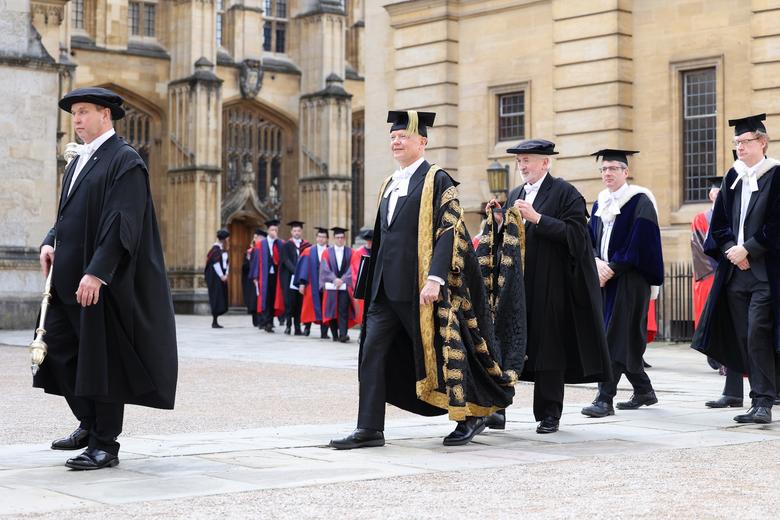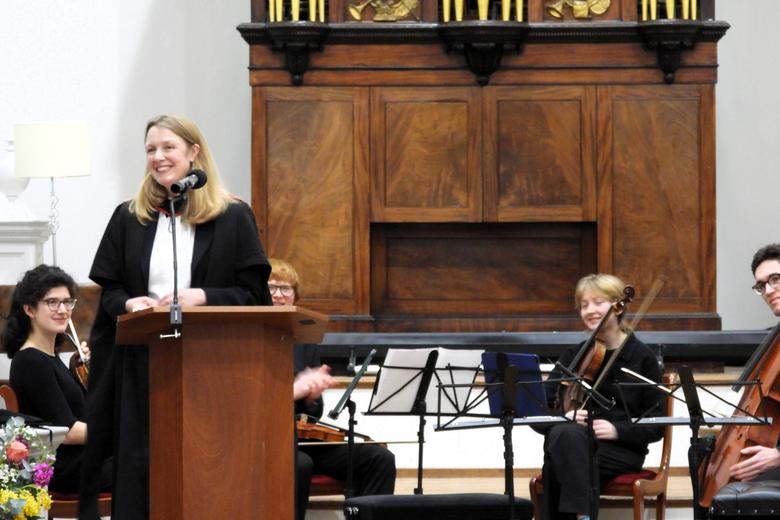70 YEARS SINCE BANNISTER'S 4 MINUTE MILE

70 YEARS SINCE BANNISTER'S 4 MINUTE MILE
Jared Martin looks back, amidst large scale celebrations to be held in Oxford in May
Published: 26 March 2024
Author: Jared Martin
Share this article
The loudspeakers at a blustery Iffley Road Track crackled and the voice of Norris McWhirter resounded across the concourse. ‘Ladies and gentlemen, here is the result of event number nine, the one mile. First, number 41, R.G. Bannister of the Amateur Athletic Association and formerly of Exeter and Merton Colleges, with a time that is a new meeting and track record, and which, subject to ratification, will be a new English Native, British National, British All-Comers, European, British Empire and World Record. The time is three…’ As the crowd erupted in applause, the rest of McWhirter’s announcement was drowned out. For something unique had just occurred: twenty-five year-old Roger Bannister had become the first person to run a mile in under four minutes – 3.59.4 to be precise.
The four minute mile had obsessed followers of athletics for decades. Talented individuals from across the world – Jack Lovelock and Paavo Nurmi, Arne Arnesson and Gunder Haegg, to name but a few – had poured their hearts and souls into inching closer to the coveted four minute mark. Commentators speculated over whether such a speed was physiologically or psychologically possible. So when Bannister finally settled the debate at Iffley Road, 6 May 1954, Oxford became for a moment the centre of the sporting universe. Bannister featured on the front page of every major British newspaper as well as 1,600 papers in the United States alone. The achievement of this Oxford-educated amateur captured the world’s imagination.

This May will mark seventy years since Sir Roger Bannister’s historic feat. To celebrate the occasion, the city and university are scheduling events throughout Sunday 5 and Monday 6 May.
On Sunday 5 May, there will be a garden party between 2.30 - 5.30pm in the grounds of Merton College, organised by Oxford University Athletic Club (OUAC) and Oxford University Cross Country Club, and attended by alumni and special guests from the university and world of athletics. Later that evening, there will be a film showing of the award-winning documentary, 'Roger Bannister: Everest on the Track'. The film will be shown at Merton College’s TS Eliot Lecture Theatre and at Vincent’s Club, with an introduction by Geoffrey Weston, who saw the original event and was interviewed for the film. If interested in attending the garden party or attending the film screening, get in touch using the contact details below.
The following day, attention will turn to the athletic proceedings. In the morning, Oxford’s High Street will reverberate with the sound of pounding footsteps as participants in the Bannister Community Mile make their way down the High Street, across Magdalen Bridge and up Iffley Road to the finish, before collecting their medals at the Sir Roger Bannister Track.
The afternoon will see 40 Bannister Mile races on the track, for national standard runners from U-9 to veterans and paralympic athletes. In the late afternoon, there will be a presentation of World Athletics heritage plaques commemorating Bannister’s achievement and Oxford University Athletic Club. 164 years since its foundation, the latter is being recognised as the world’s oldest athletics club.
Finally, at 6 pm, exactly seventy years since the starting gun announced the beginning of Bannister’s attempt – the meet will conclude with men’s and women’s elite miles, where a new generation of athletes will attempt to break the men’s 4.00 and women’s 4.35 marks. Spectators are welcome throughout, with a temporary stand erected for the occasion alongside food and drink stalls and a pop-up museum. In collaboration with World Athletics Heritage, the museum will bring together athletics memorabilia and chronicle the colourful and inspirational history of mile running. Entry for both the mass mile and the track meet will be available on the Bannister Miles website.
These 70th anniversary celebrations mark the start of an exciting period for sport at Oxford. In June, following major funding from the university, work begins on building a new track and upgrading field event facilities. With more funds, there should follow a wider transformation of the Iffley Road Sports Centre into a state-of-the-art facility measuring up to Oxford’s proud sporting heritage. This would echo Roger Bannister’s own achievement in 1948 as OUAC President, when he oversaw the replacement of Oxford’s then antiquated three-laps-to-the-mile track.
Seventy years on, the challenge of the sub-four minute mile continues to inspire generations of athletes. Whether it be lunch hour training near St Mary’s Hospital in London, or working with his teammates – Chris Brasher and Chris Chataway – whose pacing helped him eke out every last ounce of speed, Sir Roger’s run was an testament to the qualities of camaraderie and roundedness, toil and excellence, that encapsulated the spirit of amateur athletics at the time and which continue to resonate today.
Thurstan Bannister, Sir Roger’s younger, son, commented: 'After retiring from competitive athletics, my father continually encouraged elite athletes and amateur runners of all ages, partly in his role as the first chairman of the Sports Council (now Sport England). The track and community miles will be exciting to watch and I am sure many runners will find them so inspiring, they will shatter their PRs and other records.'
The University of Oxford’s Vice-Chancellor, Irene Tracey, added: 'I grew up with a love of sport and remain a keen runner, committed to the transformative benefits of sport. Breaking the four-minute mile barrier has endured as a defining achievement in sporting history. The Bannister Miles will be a fitting way to mark this legacy, achieved at the University 70 years ago, and the Bannister Community Mile through the streets of Oxford will be a fitting way to celebrate together with our community Roger’s landmark achievement.'
Jared Martin is Oxford University Cross Country Club (OUCCC) Club Captain, 2023-4
Website: https://www.bannistermiles.org.uk
Facebook: https://www.facebook.com/bannistermiles
Instagram: https://www.instagram.com/bannistermiles2024?igsh=OW45MTBmdnppeHZs
Community mile entry: https://in.njuko.com/the-bannister-community-mile-2024?currentPage=select-competition
Contact email: support@bannistermiles.org.uk















